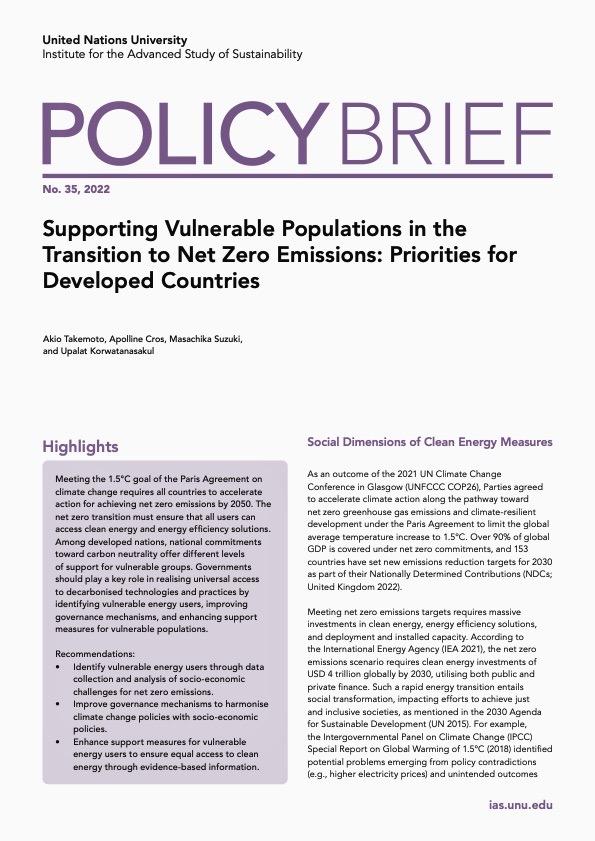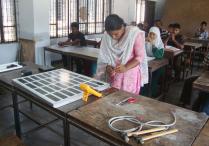A new UNU-IAS policy brief puts forward recommendations for an inclusive transition to a net zero society through enhancing support for vulnerable people. Focusing on access to clean energy, the brief, Supporting Vulnerable Populations in the Transition to Net Zero Emissions: Priorities for Developed Countries, provides guidance for policymakers on strengthening incentives and support measures for people at high risk of energy poverty to ensure equal access to decarbonized technologies and practices.
The brief is authored by Akio Takemoto, Apolline Cros, Masachika Suzuki, and Upalat Korwatanasakul.
Highlights
Meeting the 1.5°C goal of the Paris Agreement on climate change requires all countries to accelerate action for achieving net zero emissions by 2050. The net zero transition must ensure that all users can access clean energy and energy efficiency solutions. Among developed nations, national commitments toward carbon neutrality offer different levels of support for vulnerable groups. Governments should play a key role in realising universal access to decarbonised technologies and practices by identifying vulnerable energy users, improving governance mechanisms, and enhancing support measures for vulnerable populations.
Recommendations:
- Identify vulnerable energy users through data collection and analysis of socio-economic challenges for net zero emissions.
- Improve governance mechanisms to harmonize climate change policies with socio-economic policies.
- Enhance support measures for vulnerable energy users to ensure equal access to clean energy through evidence-based information.
* * *
Read more UNU-IAS Policy Briefs for the latest analysis and recommendations on solving sustainability challenges.


![smart2[1].png](https://unu.edu/sites/default/files/styles/card_view_small/public/2024-04/smart2%5B1%5D.png?itok=_-ZcLOM5)


